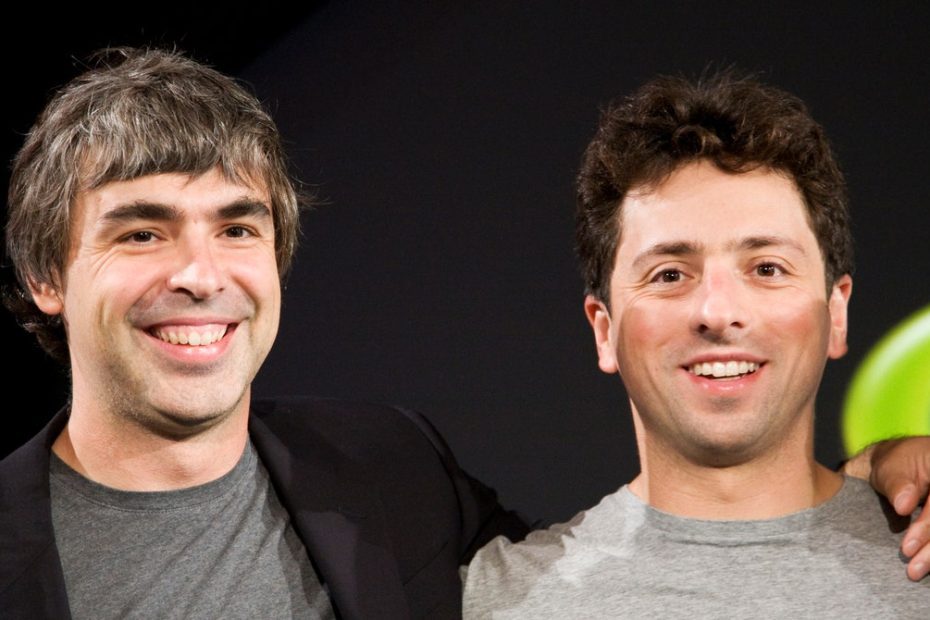Larry Page and Sergey Brin never liked dealing with reporters. “Larry can be a very sensitive and good person, but he has serious trust issues and poor social skills,” a former Google PR person once told me. “Sergey has social skills, but he doesn't trust people who he doesn't think are anywhere near his level of intelligence.”
Still, in the fall of 1999, their new communications officer urged the Google co-founders to visit the East Coast for a modest press tour. Barely a year old, Google was still under most people's radar, and few knew the intriguing story: Page put the entire World Wide Web on Stanford University servers to predict the perfect result for a search query, and Brin did some mathematical wizardry to make the concept a reality. They tried to sell the technology to one of the major Internet portals, but couldn't get a deal they liked. So they started their own company. It was still unclear where their revenue would come from. They were notoriously averse to advertising, believing that “advertising-funded search engines will be inherently biased in favor of advertisers, not the needs of consumers.”
When they arrived at Newsweek, where I then worked, none of the top editors wanted to meet them; Web search seemed a niche function of Yahoo and AOL and the other dominant portals. So the business editor and I took the pair to lunch at a downtown seafood restaurant. The grandeur and bustle of New York City seemed overwhelming to the awkward pair. The idea that their company might one day be worth $2 trillion seemed as likely as the Earth spinning off its axis.
Fast forward a quarter century. Google, now called Alphabet, is indeed worth multi-trillion dollars. Internet search is as ingrained in our lives as breathing, and Google has a 90 percent share of the world. Google has a 90 percent share of the world. Larry and Sergey, though still board members and shareholders with a net worth of more than $100 billion each, are no longer employees. And this week, U.S. Federal District Judge Amit P. Mehta issued a 286-page ruling, based on millions of documents, thousands of exhibits and a nine-week trial, that Google violated antitrust law. “Google,” he wrote, “is a monopolist and has behaved as such to maintain its monopoly.” What’s more, the company whose founders hated advertising now faces another trial to determine whether it is also a monopolist in digital advertising.
Though it was hard to imagine in 1999, Google’s rise from upstart to hegemon is now a given. Dominance, even to the point of monopoly, has proven to be the inevitable destiny for winners in the age of Internet scale. Digital economics results in a winner-takes-all competition, in which early innovators from modest backgrounds can gain an advantage over established leaders of soon-to-be-displaced technologies. Every company at the top of our current tech stack was founded by enthusiastic youngsters with a big idea, a concept generally dismissed by industry giants of the day. Before Larry and Sergey, there were Bill Gates and Paul Allen, two college students who saw a market for personal computer software; Steve Jobs and Steve Wozniak, who built Apple II PCs in a garage; Jeff Bezos, who founded Amazon on a budget to sell stuff on the Internet. A few years after Google started, Mark Zuckerberg dreamed up Facebook in his dorm room. Those tech companies that fought their way to the top of the pile shared a story: David versus Goliath.
But those catapults were something special. The network effects of a persistent and ubiquitous Internet accelerate and lock in category leaders. What’s more, these founders were fierce competitors who took full advantage of those advantages. Larry Page, haunted by the story of Nikola Tesla, the brilliant inventor who died in obscurity, vowed not to Tesla himself. Microsoft’s use of bundling to suppress competitors was infamous (and led to an antitrust lawsuit it lost). Jeff Bezos protected his flank with Napoleonic zeal, keeping customers close with low prices. The young Mark Zuckerberg ended meetings by shouting the word “Dominance!” Eventually, as the Davids became Goliaths, they fit into a new narrative: the myth of Icarus. Driven by the arrogance of their dominance—and confusing their network-effects-driven rise with their own unique geniuses—their heights brought them perilously close to the sun.
That's the context of Judge Mehta's ruling. He specifically addresses Google's practice of spending tens of billions of dollars cumulatively on default placement in the address fields of Apple and Mozilla browsers. Google maintained that it could make these deals only because its search engine was the best alternative: Apple would never force an inferior product on its customers. But the judge noted that Google's superiority was a self-perpetuating phenomenon. Because Google handles nearly all search queries, it is able to collect data on a scale that its competitors cannot match. That allows it to improve its search engine in ways that rivals cannot imagine. It is legal to establish a monopoly through a superior product or innovation, but actions that retain a monopoly, such as restricting competition, are illegal. So, the judge says, Google is breaking the law.

